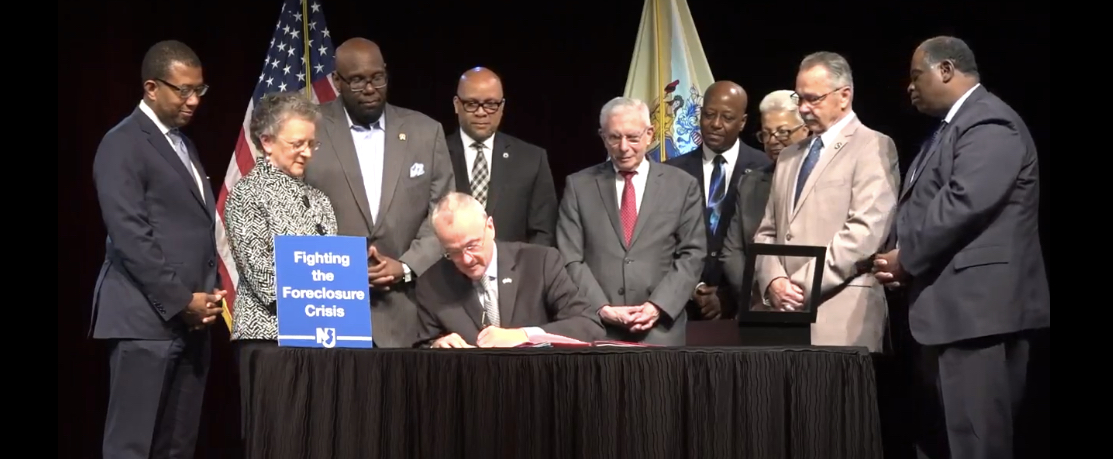
Resources
-
04/29/2019
Updated Lien Priority Legislation for New Jersey Community Associations Becomes Law
Written by: Ronald L. Perl, Esq., CCAL and Jonathan H. Katz, Esq.
On April 29, 2019, Governor Murphy signed into law a package of foreclosure bills, all of which were all passed by the New Jersey Legislature on March 25, 2019. Among these new laws are provisions lawmakers promise will help owners keep their homes, shorten the time a house sits vacant, and prevent abandoned properties from becoming eyesores.

The big news for community associations, however, is that the new law expands the scope of lien priority for community associations. This new provision will create for the first time a lien priority for homeowner associations, and will provide both condominium associations and homeowner associations a six (6) month “rolling” lien priority. This means that instead of having a priority for six months of assessments once every five years, associations will have a six month priority once each year.Prior to today, only condominiums in New Jersey were able to claim limited lien priority. As previously enacted, the lien priority statute entitled a condominium association to six (6) months of “aggregate customary assessments” following a mortgage lender’s Sheriff’s sale so long as the association has a lien recorded prior to the mortgage lender’s initiation of the foreclosure process. Put simply, even though this limited priority existed, it could only be exercised once every five years. So in most cases associations were forced to write off years of unpaid assessments, which increased the assessment burden for the paying owners and adversely affected associations’ budgets and the ability to make necessary repairs and/or capital replacements. Of course, homeowners associations were not even entitled to those six months of fees.
This new law seeks to level the playing field. As noted above, homeowners associations are now also eligible for lien priority. Most importantly, however, is the fact that this legislation increases the lien priority for condominium and homeowners associations to six (6) months for every year that the unit was in foreclosure. This means that an association can have a priority for one-half (six months) of the annual assessments each year, which is a tremendous enhancement to the existing lien priority.
Specifically, the language of the new legislation provides that “[t]his limited priority shall be cumulatively renewed on an annual basis as necessary.” To be certain that associations get the full benefit of this “rolling” priority, we recommend that associations record amended liens on a yearly basis so as to secure each year’s additional six (6) months of assessments.
As stated in our previous client alert, this legislation directly authorizes liens in both condominium and homeowners associations (the previous requirement that liens be authorized by an association’s governing documents has been removed). In addition, the new legislation clarifies that the attorneys’ fees added to the lien must be “imposed or incurred in the collection of the unpaid assessments.” Finally, the legislation does not change certain existing provisions, including that: (1) the association’s lien will be subordinate to the existing mortgage any municipal or tax liens; (2) liens may not be recorded solely for late fees; (3) in order to be entitled to the priority, the holder of a first mortgage must be notified of the lien unless, after a good faith effort, the association cannot ascertain the first mortgagee’s identity; and (4) liens can only include amounts due and payable when recorded (so it is important to know whether your documents allow for acceleration of assessments).
You can read the full text of this legislation (A-5002) by clicking here.
©2019 Hill Wallack LLP. All rights reserved. Please contact Hill Wallack for permission to reprint. Notice: The purpose of this Client Alert is to identify select developments that may be of interest to readers. The information contained herein is abridged and summarized from various sources, accuracy and completeness of which cannot be assured. This Client Alert should not be construed as legal advice or opinion, and is not a substitute for the advice of counsel.


